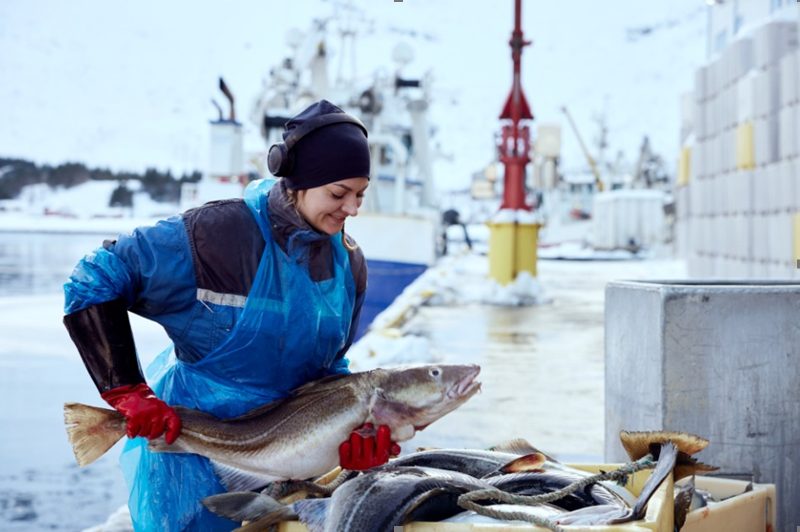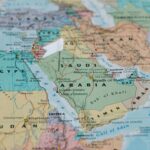NORWAY PAIRS STUNNING NATURAL ELEMENTS WITH RESPONSIBLE AQUACULTURE

Norway’s long fjords, well-connected coastline of fisheries, and stable water temperatures continue to provide ideal conditions for salmon and cod farming and serve to drive the country’s leading presence as a global seafood supplier with a uniquely sustainable aquaculture industry.
From its humble beginning – spurred by the entrepreneurial spirit of two brothers – Norway’s salmon farming scene has continued to evolve and adapt throughout history, catering for exponential rises in trade popularity and increased consumer consciousness about food origins and their environmental impact.
The country’s growing blue food industry has seen the adoption of several policies that ensure the delivery of safe, healthy, and sustainable seafood products to dinner tables around the world. Two key approaches that aim to maintain a consistently high standard of quality include embracing rules and regulations and monitoring global emission rates.
As the first – and largest – Atlantic salmon farming nation, Norway is responsible for producing over half of the world’s farmed salmon, supported by its long coastline and year-round cold water temperatures. Thriving off an ocean-based economy, the Scandinavian country continues to set the standards for safe and sustainable blue food farming, with pioneering technological advancements and strict regulations to collectively protect the fish, the farmers, and the consumers.
In line with its commitment to sustainably sourcing seafood products, Norway also continues to monitor the environmental impact of its farming efforts, with global emissions from aquaculture farms being a key marker of progress.
In response to its adherence to national, regional, and international regulations, and its dedication to sustainable aquaculture, Norwegian fisheries are consistently ranked among the world’s best in The Coller FAIRR Index, which names the world’s most sustainable animal protein producers. As the only comprehensive assessment of animal proteins, the index thoroughly considers greenhouse gas emissions, water use, biodiversity, animal welfare, and antibiotic use – as well as working conditions and government – in its analysis of contenders.
Norway’s ongoing global recognition is a testament to the country’s commitment to operating sustainably and reinforces the importance of regulating where and how fish are being farmed to provide consumers with fresh, traceable products.
Commenting on Norway’s unique ability to source, farm, and sell high quality salmon and cod – year-round, and with consumer peace of mind at the forefront – Ingelill Jacobsen, Project Manager Emerging Markets, said: “Responsible aquaculture is the key to increasing the oceans’ contribution to food production, which will directly impact our pursuit of the UN’s Sustainable Development Goals. By embracing regulations that support sustainable salmon and cod farming, and pairing that with the mitigation of carbon emissions, we are able to firmly cement Norway’s fisheries as reliable suppliers of fresh, high quality seafood products that can be enjoyed by consumers all around the world.”
To learn more about Norway’s aquaculture industry and the Norwegian Seafood Council’s role in supporting its operations, visit https://en.seafood.no/.
Last Updated on 1 year by News Desk 1













